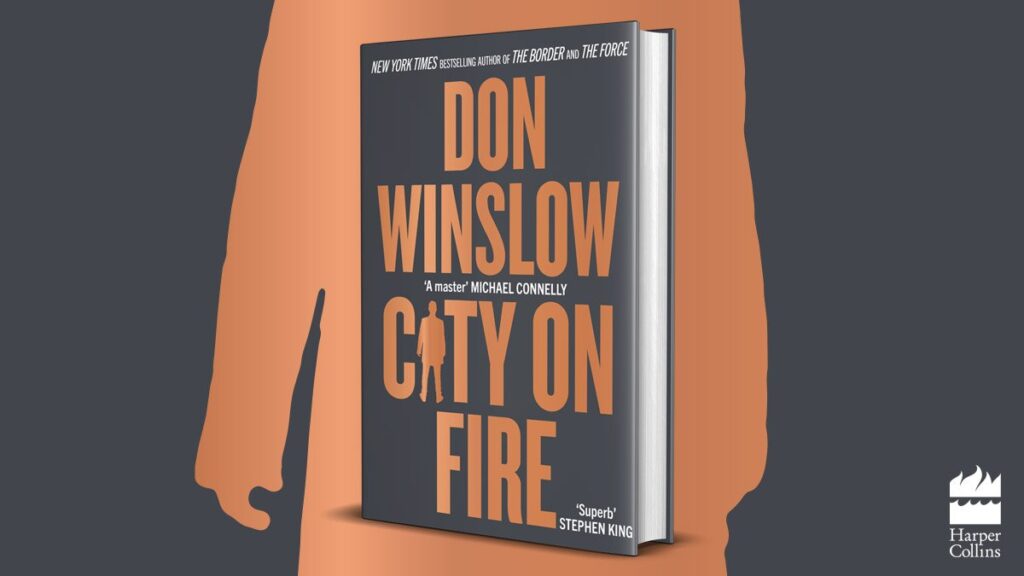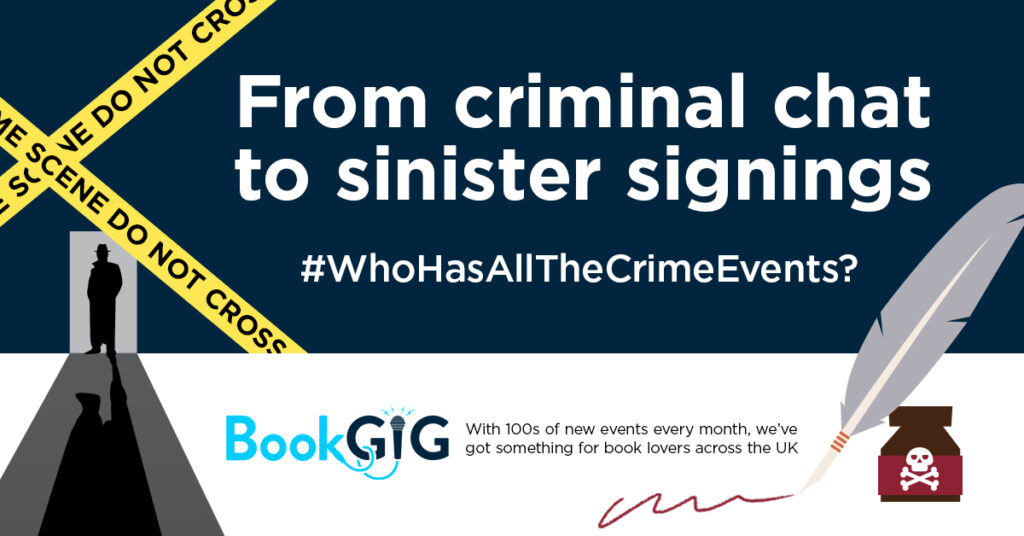Daniel Blake’s 10 favourite writers, in alphabetical order:
Harlan Coben.
In Cobenland, the suburbs are not white and shiny behind their picket fences; they’re dark, scary places where everyone carries secrets, and danger occurs when those secrets collide. The familiarity of the settings and the characters seduce the reader; these are people like you, Coben says, barely pausing to strap you in before starting the rollercoaster. His writing is pacy, vivid and often laugh-out-loud funny, almost physically impelling you to turn the page. Plot twists come thick and fast – Coben puts a rug under your feet with the express intention of pulling it out again when you least expect it – but rarely do they feel contrived or overdone.
Martin Cruz Smith.
The Arkady Renko series tick all the boxes of superior crime fiction. Expert characterisation? Check. Tack-sharp dialogue? Check. Sense of place? Check. Deft prose style? Check. Not since Greene has a writer managed to combine character and thrills so seamlessly. Renko is a man we root for, simple as that. He is moral without being a prig, humble and compassionate without being a saint, smart without being pedantic, loyal without being blind, wryly cynical without being bitter, and optimistic without being gullible. A good man, in other words; one with flaws which make us empathise with him, and with qualities which make us aspire to be him.
Charles Cumming.
The search for the ‘new Le Carre’ is one of the publishing industry’s most perennial exercises, and there’s no shortage of contenders. Cumming is arguably the frontrunner. His writing is sharp and deft, and he has the confidence to let his characters drive the story rather than throw in otiose plot twists for the sake of it. He also gets better with every book; his most recent, the China-set Typhoon, is his most ambitious and accomplished work yet. The apprentice may one day overtake the master.
Dick Francis.
Francis’ critics say his books are all the same; first-person hero with an offbeat job who foils the baddie and gets the girl. But surely that’s precisely the point? You know where you are with a Dick Francis, and you know too that it will be high quality. His prose is jaunty, his plots are taut, his characters are three-dimensional, and rare is the book where he doesn’t make some obscure form of metier – toy-making, wine merchant, private pilot – both interesting and dangerous. And he could write scary with the best of them; for example, the scene in Banker where the hero’s trapped in a horsebox with a demented horse chills your heart no matter how often you read it.
Robert Harris.
One of the few writers who hits the perfect crossover of mega-sales and critical acclaim, Robert Harris is as versatile as he is talented. Equally at home in Ancient Rome as he is in World War Two, with a side order of lacerating contemporary political thriller in The Ghost (interestingly, perhaps, the only film made from any of Harris’ books which is halfway as good as the source material). Harris is a master at constructing worlds in which the reader believes implicitly, be they large (a victorious Third Reich) or small (The Ghost’s island bleakness), and in those worlds he places finely-drawn, multi-dimensional characters. His prose is top-drawer, too; stylish but unshowy, with some exquisite turns of phrase.
Thomas Harris.
Creator of the most iconic villain in recent, or perhaps any, history. For Hannibal Lecter alone, if nothing else, Thomas Harris’ place in the pantheon is assured. But Harris is much more than a one-note lip-smacking fava bean-eating Chianti-drinking wonder. His writing is fantastic; sparse but lyrical, replete with allusion. Red Dragon, Lecter’s first (and best) outing, pretty much invented the behavioural science/serial killer subgenre, and The Silence of the Lambs’ quality can be judged by the astonishing extent to which the Oscar-winning film was faithful to the book. If Hannibal Rising was a book too far, the end of Hannibal, when Lecter and Starling swan off into the sunset together, was the perfect finale to one of the most bizarre and disquieting love stories of our time.
Mo Hayder.
Perhaps more than any other contemporary author, Hayder demands of her readers a strong stomach. She does not spare us the darkness in man, either physically – death scenes and autopsies are gruesome by any standards – or, more importantly, psychologically. But the gore and trauma are never gratuitous. Hayder has the rare ability to take the reader to an alien world and completely submerge us there. In Tokyo, her best work, it is the present-day title city and the siege of Nanking in 1937. Switching between the two, Tokyo contains some of the scariest set-pieces you’ll ever read, a quirky and damaged heroine, a villain (The Nurse) every bit as terrifying as any antagonist of recent memory, and a climax of horrific, repulsive power.
Ira Levin.
“The Swiss watchmaker of suspense novels, he makes what the rest of us do look like cheap watchmakers in drugstores.” So said Stephen King of Ira Levin, and he’s right. Levin’s books are short, his prose spare to the point of anemia – but in such confined spaces he manages to eke out rounded characters, topical concerns, gradual increments of tension and uncertainty, and a sense of humour which ranges from dark to pitch black. Small wonder that so many of Levin’s books have been made into successful films – A Kiss Before Dying, Rosemary’s Baby, The Stepford Wives, The Boys From Brazil and Sliver among them.
Henning Mankell.
His position as king of Scandinavian crime fiction may have been usurped by Stieg Larsson, at least temporarily, but Mankell’s works stand foursquare on their own terms. Kurt Wallander is one of the great fictional detectives: downbeat without being depressing, troubled without being tortured, sympathetic without being soft. The world which whirls around Wallander is not the safe, liberal, model society as which Sweden is often portrayed; in fact, the questions as to what is going wrong with Swedish society, and by extension the West as a whole, are central to Mankell’s works. Here, truly, is the modern crime writer as national social conscience.
Daphne du Maurier.
The queen of the opening lines; not merely Rebecca’s famous “Last night I dreamt I went to Manderley again” but also Don’t Look Now’s eponymous “‘Don’t look now,’ John said to his wife, ‘but there are a couple of old girls two tables away who are trying to hypnotise me.’ The stories which follow such killer lines are just as good, and often unsettle the reader by powerful juxtaposition – the beautifully-drawn senses of place (Cornwall, Venice) set against hints of the supernatural (the posthumous influence of Rebecca, the red dwarf in Don’t Look Now). Du Maurier does not always tie her loose ends up; in My Cousin Rachel, for example, we never find out for sure whether Rachel is a murderer or Philip is simply deluded. Du Maurier treats the reader as an adult, and it is this which makes her work resonate.


